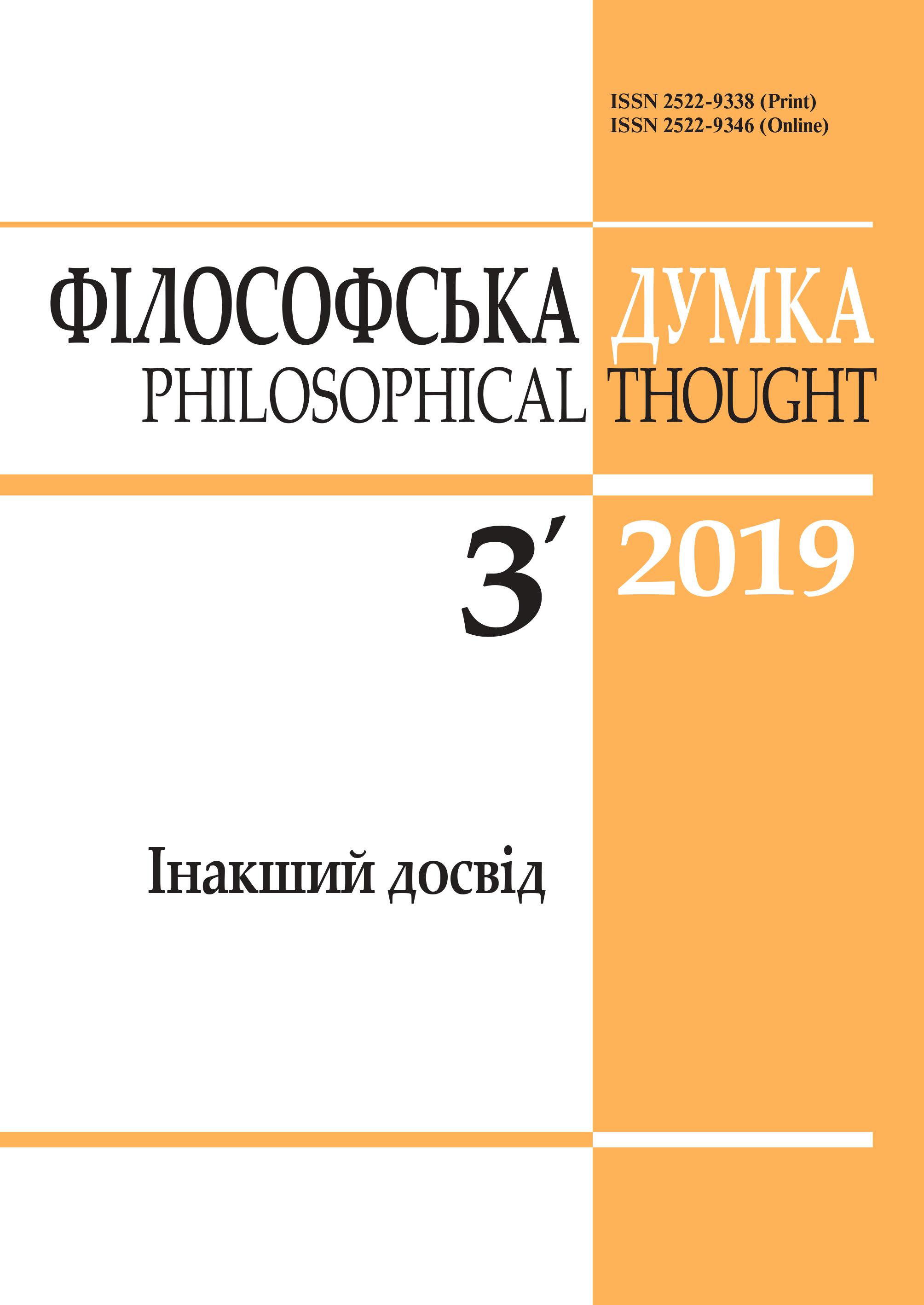Hermeneutics of the Biblical text in the school of Antioch: Adrian's Introduction to the Divine Scriptures
WINNERS OF THE NELLI IVANOVA- GEORGIEVSKA PRIZE
DOI:
https://doi.org/10.15407/fd2019.03.092Keywords:
hermeneutics, textual tradition, masoretic text, Peshitta, Septuaginta, Adrian AntiochAbstract
The main purpose of the study was to determine the place of the Greek revisions of the Scripture in Antiochian exegetical practice, on the example of the work of Adrian of Antioch “Εἰσαγωγή εἰς τὰς θείας γραφάς” (“Introduction to the Divine Scriptures”). The detailed analysis of the work envisaged the highlighting of hermeneutic and linguistic issues, as well as the fixation of linguistic features of the text: phonetics, morphology, syntax and vocabulary. An analysis of all levels of the author’s language was necessary for an adequate understanding of the text and the comparison of biblical quotations with existing revisions of the Scriptures. Therefore, the method of textual and contextual analysis, comparative and statistical methods allowed to determine the specificity of Hadrian’s approach to the sacred text, the conceptual apparatus of his work and the source (divergences of the biblical text).The hypothesis of the presence in Adrian’s citations of clear matches with the Hebrew text and the Syriac translation is proved in this article, which emphasizes the absence of a universal standard LXX that would exist as a codified textological tradition among representatives of the Antioch school. Adrian’s quotation from the memory of the biblical text was also confirmed, in the same way as the assumption about the possibility of Adrian’s translation of the Holy Scriptures and the option of having an existing revision of the text before him, but unknown to us today. The thesis of the broad context of the coexistence of textual traditions, in particular in the 5th century, among the representatives of the Antioch school, found its comprehensive justification.
References
Biblia Hebraica Stuttgartensia by Donald R. Vance; George Athas; Yael Avrahami (2002, May). A Reader's Edition, Hendrickson Publishers.
Brock, S. (1999). From Ephrem to Romanos: Interactions between Syriac and Greek in Late Antiquity. Aldershot: Ashgate Publishing.
Corley, B., Lemke, S.W., Lovejoy, G.I. Biblical Hermeneutics: A Comprehensive Introduction to Interpreting Scripture (2002). S.l.: Broadman and Holman.
Dynnik, V.I. Literary Encyclopedia: Dictionary of Literary Terms (1925), vol. 2. Moscow, Leningrad: L.D. Frenkel Publishing house. [=Дынник 1925]
Gossling, Adrians εἰσαγωγή – aus neu aufgefundenen Handschriften herausg., ubersetzt und erlautert (1887). Berlin.
Ketabe Qadise h Ketabe de-Diyatiqi Atiqa ve-Hadata (Syriac Bible) by Lee, Samuel (1826). London: British and Foreign Bible Society.
Lampe, G.W.H. (1961). A Patristic Greek Lexicon. Oxford: Clarendon Press.
Liddell, H.G., Scott, R. (1996). Greek-English Lexicon. Oxford: Clarendon press.
Literary Encyclopedia: Dictionary of Literary Terms (1925), in 2 vols,. / ed. by N. Brodskii, A. Lavretskii, E. Lunin, V. Lvov-Rogachevskii, M. Rozanov, V. Cheshichin-Vetrinskii. [In Russian] Moscow, Leningrad: L.D. Frenkel Publishing house.[= Литературная энциклопедия 1925]
Martens, P.W. (2017). Adrian's Introduction to the Divine Scriptures, An Antiochene Handbook for Scriptural Interpretation. In Oxford Early Christian Texts.
McLeod, F.G. (2009). Theodore of Mopsuestia, Early Church Fathers. London, New York: Routledge.
https://doi.org/10.4324/9780203893715
Migne, J.-P. Patrologiae cursus completus (1888). T. 98. Series Graeca. Paris.
Nash, Н.S. (1892). The Exegesis of the School of Antioch. A Criticism of the Hypothesis that Aristotelianism was a Main Cause in Its Genesis. Journal of Biblical Literature, 11, 22-37.
https://doi.org/10.2307/3259076
Nassif, B. (2002). Antiochene θεωρία in John Chrysostom's Exegesis. In Ancient &Postmodern Chrystianity. Paleorthodoxy in the 21st Century. Downess Grove, Illinois: Inter Varsity Press.
Septuaginta (1935 [1971]). Vol. 1, 9th edn., Hrsg. Rahlfs, A. Stuttgart: Württembergische Bibelanstalt.
The Bible, or the Book of Scripture of the Old and New Testament. From the language of Hebrew and Greek into Ukrainian literally translated (2009), tr. by I. Ogienko, 1962. [In Ukrainian] Kyiv: Ukrainian Bible Society. [=Біблія 2009]
The Greek New Testament (2000), 4th revised edition. Stuttgart: UBS.
Publishing house.
Weisman, A.D. Greek-Russian dictionary (2006). [In Russian] Moscow: Greco-Latin cabinet of Yu.A. Shichalin. [=Вейсман 2006]
Downloads
-
PDF (Українська)
Downloads: 354
Published
How to Cite
Issue
Section
License
Authors who publish with this journal agree to the following terms:
- Authors retain copyright and grant the journal right of first publication.
- Authors are able to enter into separate, additional contractual arrangements for the non-exclusive distribution of the journal's published version of the work (e.g., post it to an institutional repository or publish it in a book), with an acknowledgement of its initial publication in this journal.
- Authors are permitted and encouraged to post their work online (e.g., in institutional repositories or on their website) prior to and during the submission process, as it can lead to productive exchanges, as well as earlier and greater citation of published work (See The Effect of Open Access).


